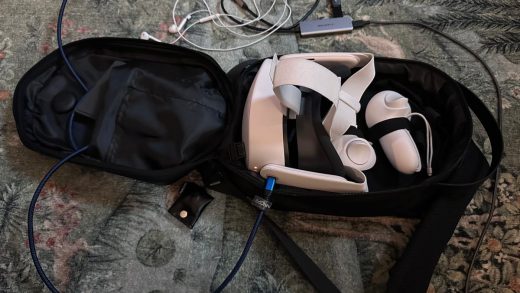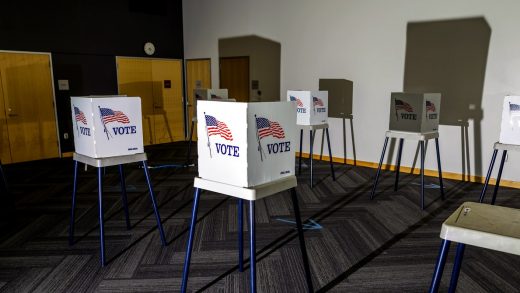
Six years ago I probably would’ve casually dismissed someone’s sorrow over an “end of service announcement” for a computer game.
But that was then and as a friend recently reminded me, I’ve changed a lot.
In April 2017 I was introduced to VR by my son and a few months later I discovered Echo Arena, a game that would impact my life in ways I never could’ve imagined.
As a seated player, due to health challenges that prevented me from standing for long periods of time, the physicality of Echo helped me lose weight and move my body in such a way that it also acted as a sort of physical therapy. I haven’t used a wheelchair or walker since I started playing Echo and I was also able to stop all pain meds in 2019.
The emotional impact was no less impressive. In physical reality, I was expected to do the laundry, cook meals, and run the household. My existence always seemed to be kind of put on a shelf until there was another need. Whenever I grabbed the VR headset, though, and launched through the tube into zero-g with my team, I found blissful moments of freedom and, over time, self-respect. There are many things I love about being a mom and caring for my family, but I had become defined solely by the roles of “wife” and “mother.” Through Echo a new identity started to form — Hasko7.

Trolling in the game – and other VR games – opened my eyes to new levels of prejudice and hate. As a self-described “middle-aged, conservative Christian homeschool mom of five,” I was a target on many levels, but didn’t understand it. How can people hate you just for existing or wanting to have fun? For nearly six years, I’ve chatted with friends, randomly run into each other in Echo or made plans to play at a certain time, much like experiences in physical reality where you might meet a friend for lunch or run into someone at the park. Virtual reality isn’t just a game. VR’s unique sensation of “presence” makes people feel like they’re actually IN the environments – making friends, creating memories, learning skills, and very much developing identities.
My life changed drastically through Echo as I became a VR esports player, community expert, esports journalist, speaker, and outspoken advocate for VR. Away from my conservative roots, I made friends around the world, discovered new things about myself and others, and gained skills for a new career. However, these changes also had devastating consequences. Prejudice against technology is strong, and where I live women aren’t supposed to step outside their “assigned roles.”

When I separated from my husband, I played Echo. When family and friends told me how wrong it was for a “grown woman” to work in tech and instead suggested that I apply to work at the local grocery store, I played Echo. When I moved into a place with no floors or indoor bathrooms, I paid for electricity and internet first – and I played Echo. (A few months later I put in floors and bathrooms and continue to rebuild this home myself.)
Echo has been my primary social outlet, physical activity, and therapy for nearly six years. And I’m not the only one. People have fallen in love, found careers, and made major life changes. There are teens who have played this game for 1/3 of their lives. Even for adults who have had many more opportunities to experience life and realize that this game is only one part of a greater experience, the impact has been great and that should be acknowledged. It also raises questions.
In regards to minors, if the local teen hangout burned down in a fire in physical reality, parents would see it on the news and realize it might make their child sad. We’ve learned the importance of counselors during traumatic events, but with gaming it’s almost as if there’s no true ability to mourn. “It’s just a game” doesn’t exactly acknowledge the magnitude of the loss.
Of course I realize that it’s never going to be an easy thing for anyone to announce that something is coming to an end, but it seems like we could be doing better to provide support in these situations.
Echo and Altspace are just two recent examples and the impact on community members should be considered. We’re no longer dealing with only 2D environments, but the loss of places that felt like home, and where memories were made with people that became family.
Immersive technology is changing how we see the world and how we conceive reality. For me, the questions being raised as a result of this announcement aren’t limited to Echo, but to overall experience and accountability. This is something we’ll need to continue evaluating as an industry, as a community.
I’m so incredibly grateful that I put on a headset six years ago and discovered Echo. The Ready At Dawn developers are incredibly talented and created an AMAZING IMMERSIVE WORLD, so of course I think we should look forward to their next project. Maybe we’ll have a Horizon reboot with the mechanics of Echo alongside an in-game report system? Now that would be something awesome.
I’m not the same person I was when I entered that first beta lobby. I’m grateful for the people, the experiences, and the game. Like many others who have played Echo, it helped me become a better version of myself, and that’s a gift to cherish with no end date.
Sonya Haskins aka hasko7 is a community builder and long-time Echo player who resides in the foothills of the Appalachians. This is a guest editorial not produced by the UploadVR staff. No compensation was exchanged for the creation of this content.


